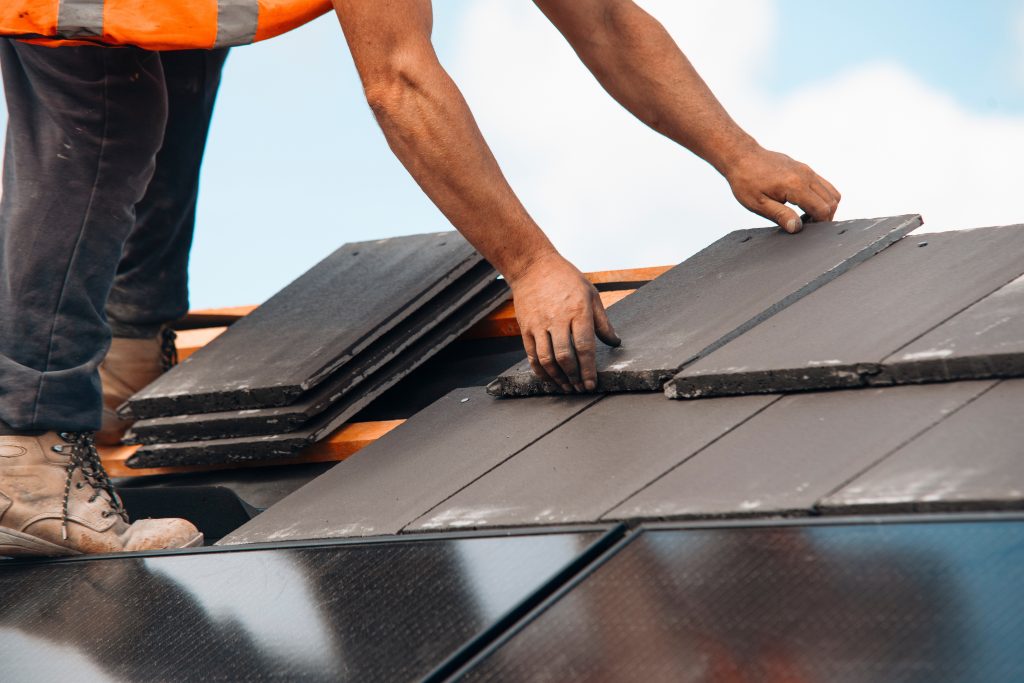Is It Time for a Roof Inspection? Here’s What to Look For

Did you know that your roof is your home’s first line of defense against the elements? Ignoring it could lead to costly repairs down the line! Regular roof inspections are crucial for maintaining the integrity of your home and ensuring its longevity. In this blog post, we’ll help you identify when it’s time for a roof inspection and what signs to look for to keep your home safe and sound.
1. Understanding the Importance of Roof Inspections
Why Regular Roof Inspections Matter
Roof inspections play a vital role in maintaining your home’s value. A well-maintained roof not only enhances curb appeal but also protects your home from potential damage. Neglecting roof maintenance can lead to serious risks, including leaks, structural damage, and even mold growth. By investing in regular inspections, you can catch minor issues before they escalate into costly repairs, ultimately saving you money in the long run.
2. Signs That Indicate You Need a Roof Inspection
Key Signs Your Roof Needs Attention
Visible Damage
Look for missing or damaged shingles, as well as sagging areas or uneven surfaces. These visible signs can indicate underlying issues that need immediate attention.
Interior Signs
Check for water stains on ceilings or walls, which can signal leaks. Additionally, mold or mildew growth in the attic or upper floors can indicate moisture problems that require inspection.
Age of the Roof
Different roofing materials have varying lifespans. For instance, asphalt shingles typically last 15-30 years, while metal roofs can last 40-70 years. If your roof is nearing the end of its lifespan, it’s essential to schedule an inspection.
3. Seasonal Considerations for Roof Inspections
Best Times for Roof Inspections
Spring and Fall Inspections
Spring and fall are ideal seasons for roof inspections. After winter storms, it’s crucial to check for damage, and before heavy rains, ensuring your roof is ready to handle increased water flow.
After Severe Weather Events
Following hail, heavy winds, or snowstorms, it’s wise to conduct an immediate inspection to assess any potential damage that may have occurred.
4. DIY vs. Professional Roof Inspections
Should You Inspect Your Roof Yourself or Hire a Professional?
DIY Inspection Tips
If you choose to inspect your roof yourself, create a checklist that includes checking for visible damage, assessing the condition of shingles, and looking for signs of leaks. Always prioritize safety by using a sturdy ladder and wearing appropriate gear.
When to Call a Professional
While DIY inspections can be helpful, hiring a licensed roofing contractor is often the best choice. Professionals bring expertise, specialized tools, and a thorough understanding of roofing systems, ensuring that hidden issues are identified and addressed.
5. What to Expect During a Professional Roof Inspection
The Roof Inspection Process Explained
During a professional roof inspection, the contractor will follow a systematic process that includes:
-
Visual Assessment: Inspecting the roof for visible damage, including shingles, flashing, and gutters.
-
Use of Tools: Utilizing infrared cameras and moisture meters to detect hidden issues.
-
Detailed Reporting: Providing a comprehensive report outlining findings, potential problems, and recommendations for repairs.
6. Confidence-Building Section: Taking Action
Next Steps After Your Inspection
Once you receive the inspection findings, it’s essential to take action. If repairs are needed, choose a reputable roofing contractor by considering recommendations, online reviews, and their credentials. Regular maintenance and follow-up inspections are crucial for prolonging the life of your roof.
Conclusion
Don’t wait for a small problem to turn into a big headache! Schedule your roof inspection today and protect your home. Regular inspections are vital for maintaining your roof’s integrity and ensuring your home remains a safe haven. If you have any experiences or questions about roof inspections, feel free to share them in the comments section below!
Call to Action
For more home maintenance tips, subscribe to Dingdoor’s newsletter! Plus, download our free checklist for DIY roof inspections to help you stay on top of your roof’s condition.

